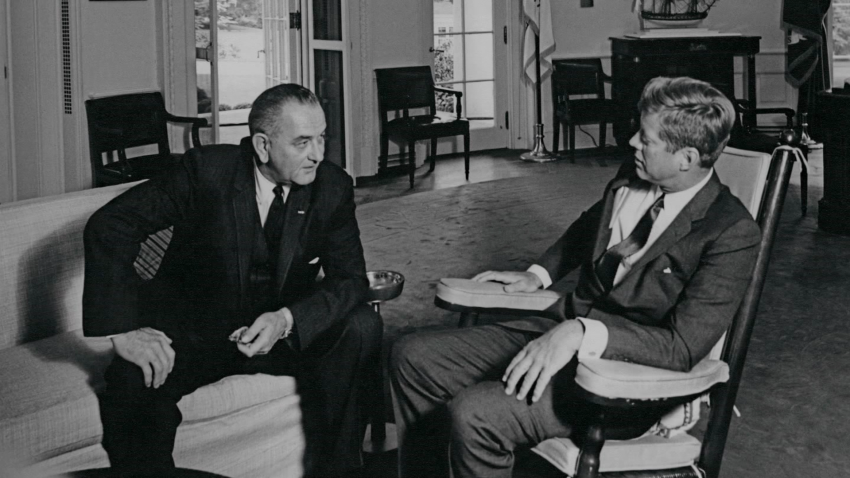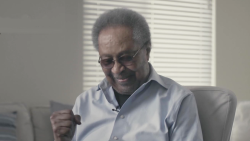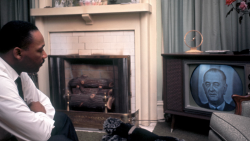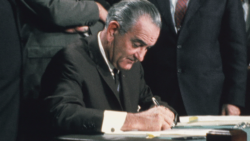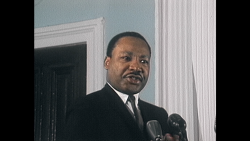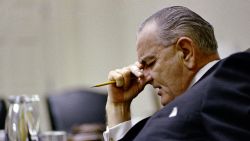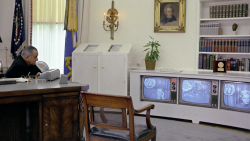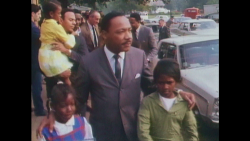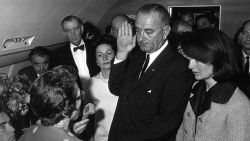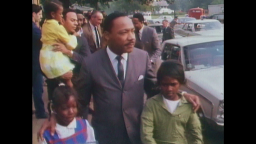Editor’s Note: CNN’s new four-part series “LBJ: Triumph and Tragedy” reveals dramatic first-hand accounts from the last surviving members of President Johnson’s inner circle, never-before-broadcast archival material and secretly recorded audiotapes. The series premieres over two consecutive nights with back-to-back episodes on Sunday, February 20, at 9 p.m. and 10 p.m. ET and Monday, February 21 at 9 p.m. and 10 p.m. ET on CNN.
Lyndon B. Johnson is one of the most consequential US presidents, responsible for passing some of the most significant pieces of legislation in modern history, including the Civil Rights Act of 1964 and the Voting Rights Act of 1965.
But his legacy is complicated because it’s intertwined with the escalations of the Vietnam War, which resulted in more than 58,000 US military casualties, according to the National Archives.
“It’s been a half a century since LBJ was in the Oval Office, and he remains this misunderstood, enigmatic figure,” said Mark Updegrove, president and CEO of the LBJ Foundation. “Some people think he was a power-hungry warmonger. Other people think he was the greatest civil rights president since Abraham Lincoln.”
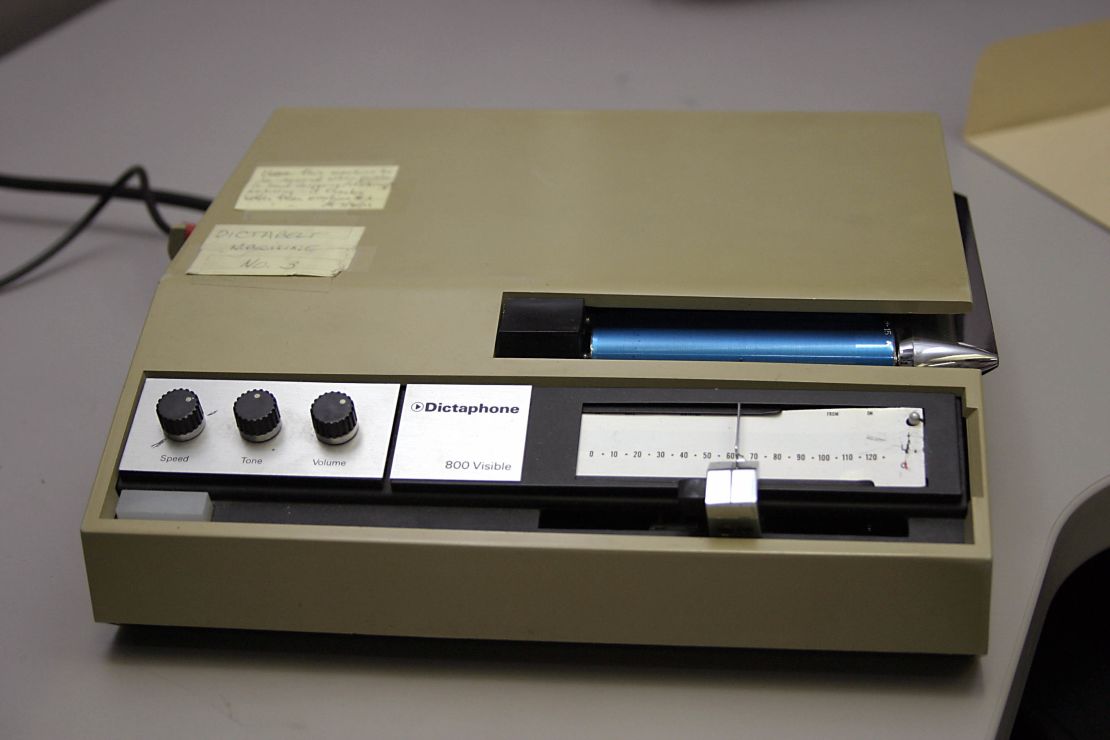
During his time in office, Johnson installed a tape-recording system which secretly recorded all his calls. These recordings offer a rare and intimate look at the president’s strategy and confessions.
Here are five of the top moments secretly captured during Johnson’s presidency.
Johnson calls Vietnam ‘the biggest damn mess’
One of the big challenges Johnson faced during his presidency was the ongoing Vietnam War.
Johnson, who inherited the conflict in Southeast Asia from the Kennedy administration, admitted early on in his presidency he did not know what to do. He believed the US had several choices in dealing with Vietnam, including sending in troops to “start attacking the Viet Cong,” or withdrawing and leaving South Vietnam to its fate.
On a call with national security adviser McGeorge Bundy on May 27, 1964, Johnson voiced his concerns about the war.
Johnson said, “It just worries the hell out of me. I don’t see what we can ever hope to get out of there with once we’re committed … I don’t think it is worth fighting for, and I don’t think we can get out. And it’s just the biggest damn mess I ever saw.”
“Vietnam was really a very difficult thing for him. He never was comfortable with our presence in Vietnam,” said Jim Jones, special assistant to Johnson. “He felt that the United States had given its word with two different administrations, the Eisenhower administration and the Kennedy administration – it’s given its word to Vietnam.”
Johnson ultimately decided to send more troops to Vietnam. He first he authorized sustained bombing of North Vietnam. Then he sent combat forces. And by November 1965, there were 175,000 troops in Vietnam, with an additional 100,000 the following year. The number surged to 535,000 by the end of Johnson’s presidency, according to the University of Virginia’s Miller Center.
Critics say the decision cost tens of thousands of American lives, and historians agree Vietnam cost Johnson reelection in 1968.
Johnson tells Martin Luther King Jr., ‘we just won’t give up an inch’
Johnson had numerous calls with civil rights icon Martin Luther King Jr.
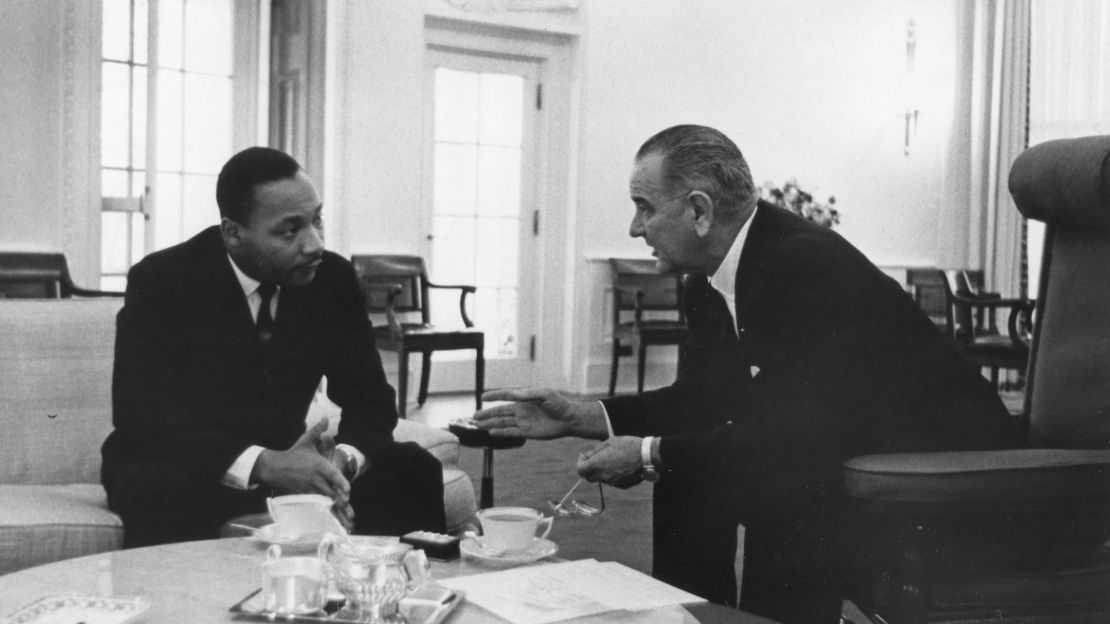
Shortly after becoming president following John F. Kennedy’s assassination in 1963, Johnson told King, “I’m going to try to be of all of your hopes.”
King responded, “I am so happy to hear that, and I knew that you had just that great spirit, and you know you have our support and backing.”
Johnson used the months after the assassination, which he described as “an impossible period,” to pass federal civil rights legislation as a tribute to Kennedy. “I’m going to ask the Congress Wednesday to just stay there until they pass them all. They won’t do it. But we’ll just keep them there next year until they do, and we just won’t give up an inch,” he said.
“No memorial oration or eulogy could more eloquently honor President Kennedy’s memory than the earliest possible passage of the Civil Rights Bill for which he fought so long,” Johnson said in a speech as he advocated for the Civil Rights Act of 1964.
Johnson followed through on this goal, signing both the Civil Rights Act of 1964 and the Voting Rights Act of 1965.
“Lyndon Johnson was the advocate for the most significant civil rights legislative record since the nation’s founding,” said Melody Barnes, director of the White House Domestic Policy Council under President Barack Obama. “It allowed for Barack Obama to be President of the United States.”
The President’s wife critiques his performance, giving him a B+
Johnson’s tapes also capture affectionate moments between him and his wife, Lady Bird.
On one occasion, as Johnson was about to announce he had ordered the first bombing of North Vietnam, the first lady called. She said she rang, “merely to tell you I loved you. That’s all.”
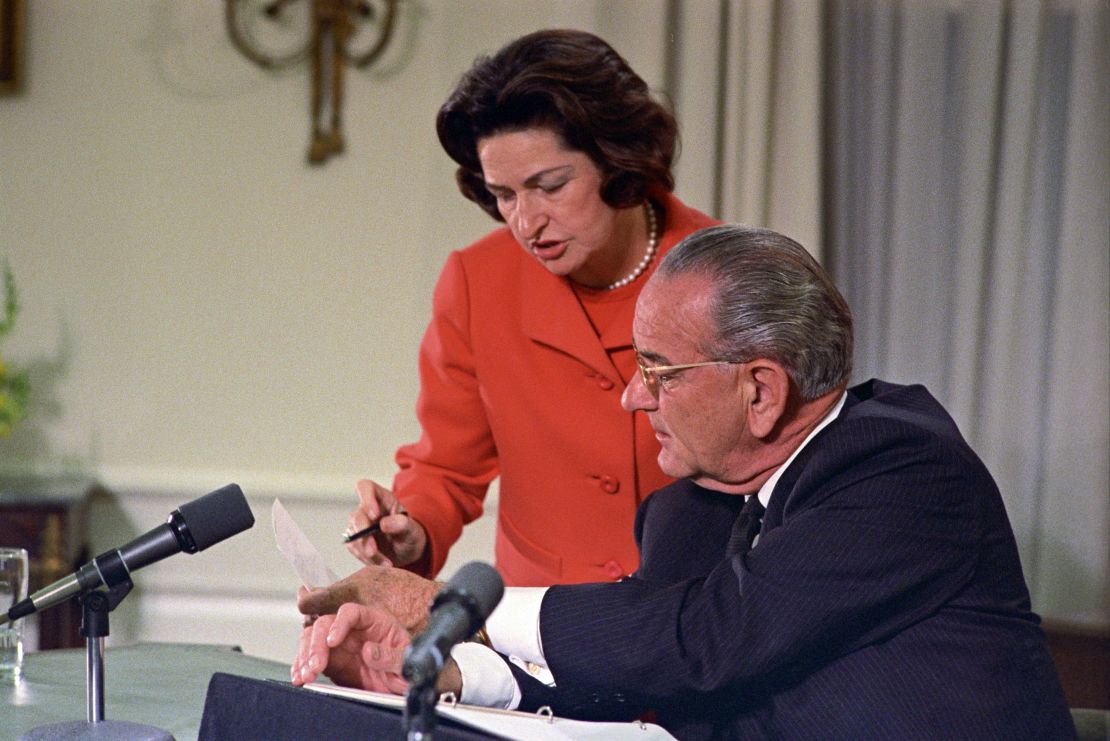
Another time in 1964, the first lady called minutes after a press conference to critique his performance. Johnson had made several personnel announcements and then answered questions from reporters about a series of topics including relations with France and Vietnam.
She started by complimenting him saying he looked strong, firm and reliable.
But she continued to say, “During the statement, you were a little breathless, and there was too much looking down, and I think it was a little too fast. Not enough change of pace, dropping voice at the end of sentence. There was a considerable pickup in drama and interest when the questioning began. Your voice was noticeably better, and your facial expressions noticeably better.”
She gave him a B+ grade and recommended he give a shorter written statement.
What did the President think of his own performance? He said, “I thought it was much better than last week.”
The call ended with the first lady saying, “I love you very much.” And Johnson saying, “OK, goodbye.”
Johnson tells Judge Thurgood Marshall to ‘do this job Lincoln started’
The tapes also revealed the President’s carefully laid out plan to groom Thurgood Marshall to become the first Black man on the US Supreme Court.
Marshall was unaware of all this when Johnson first called him in 1965, asking the federal appeals court judge to become solicitor general of the US.
“I want the top lawyer in the United States representing me before the Supreme Court to be a Negro. And be a damn good lawyer that’s done it before.” He added, “I want to do this job that (Abraham) Lincoln started, and I want to do it the right way.”
Leaving the security of a lifetime job on the bench for an uncertain political post – where he could be fired at any time – at first concerned Marshall. But Johnson, a master persuader, convinced him during the call.
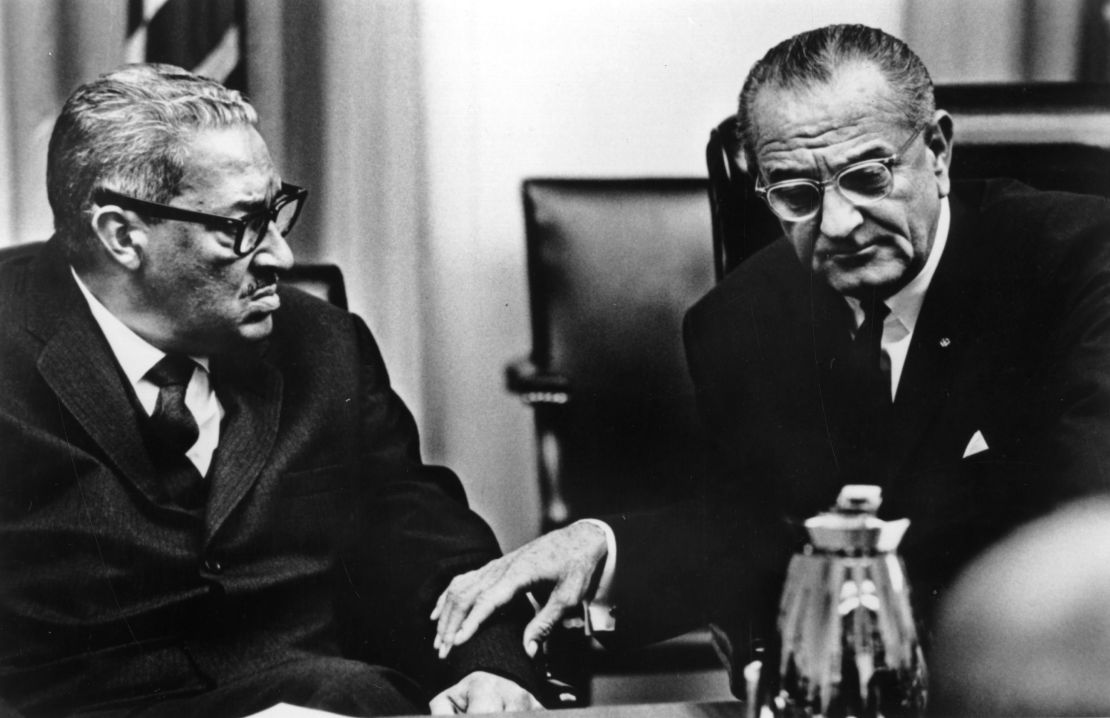
Two years later, Johnson’s plans came to fruition, and he appointed Marshall to the Supreme Court. Marshall served until 1991. He died in 1993.
Nixon sabotaged Johnson’s peace talks with Vietnam
Near the end of his term, Johnson tried to organize peace talks between North and South Vietnam but was shocked when suddenly South Vietnam, ally to the US, withdrew.
The FBI learned it occurred because Republican nominee Richard Nixon had intervened and promised South Vietnam a better deal under his administration.
“This is a shocking revelation. An American presidential candidate is taking steps to undermine the foreign policy during a war of the sitting President,” explained Guian McKee, an associate professor in Presidential Studies at the Miller Center.
Johnson alerted Sen. Everett Dirksen about the campaign’s interference and asked him to tell Nixon to “quit playing with it.”
Johnson told Dirksen, “This is treason.”
Nixon won the election in 1968, and the Vietnam War ended six years later when Saigon fell to the communists in April 1975.
“In the final analysis, we actually had a better deal going at that time than we did when we pulled out of Vietnam in ’75. And in that time frame the lives lost was about 25,000,” said Jones, special assistant to Johnson. “If it hadn’t been for the Nixon (campaign), I think we could have gotten a peace agreement in Vietnam.”
For updates on CNN’s Original Series and Films, sign up for our weekly Keep Watching newsletter.
